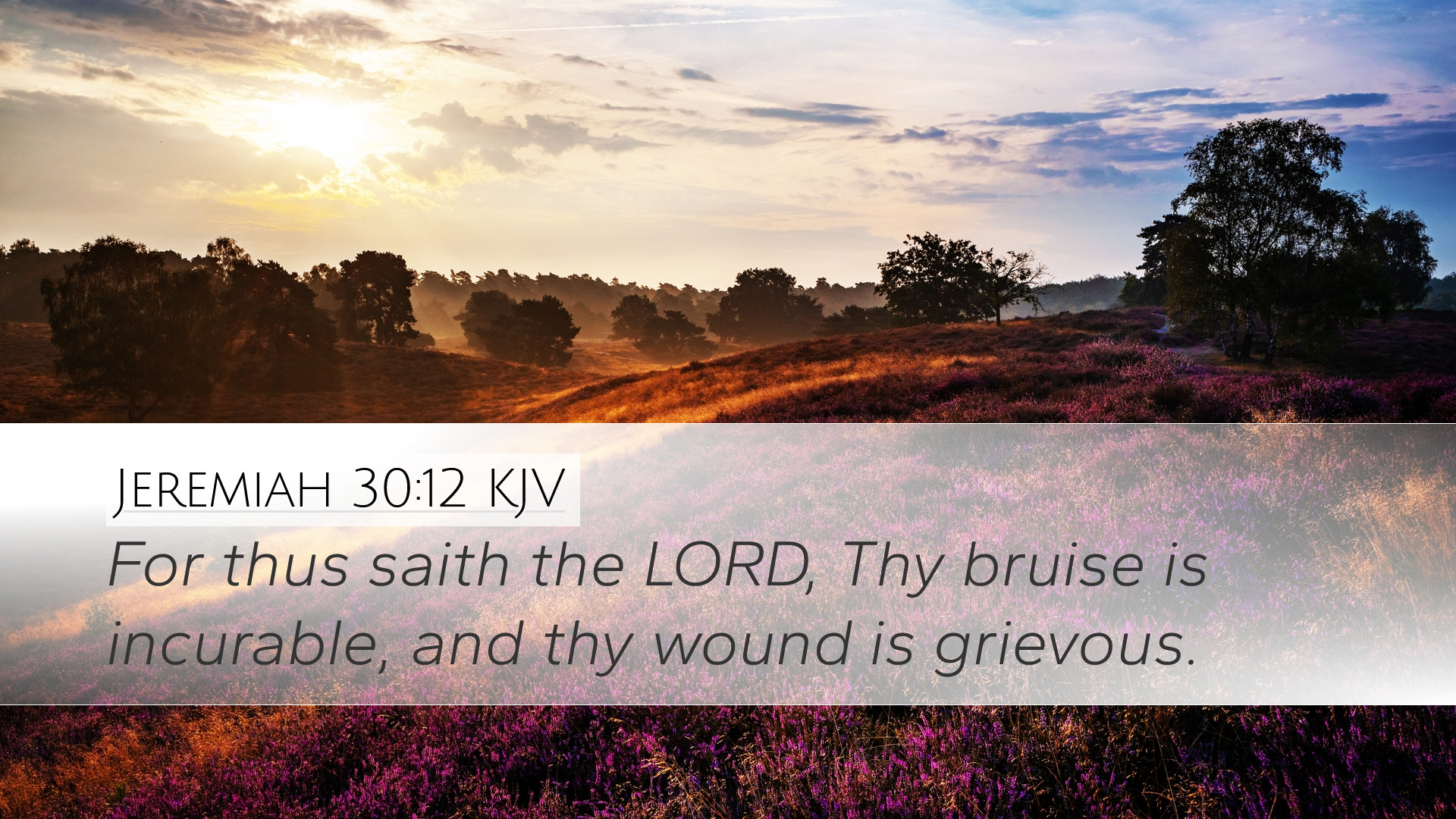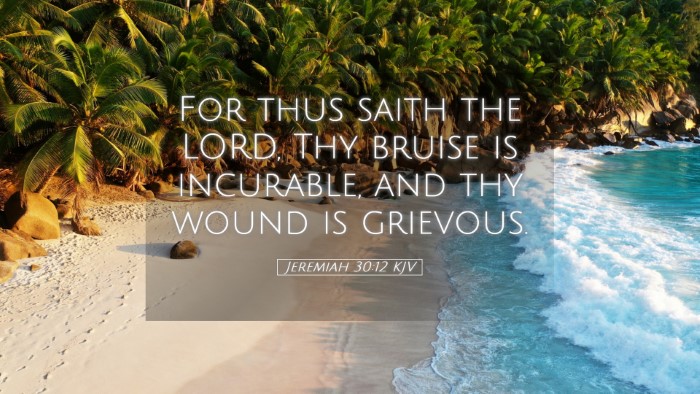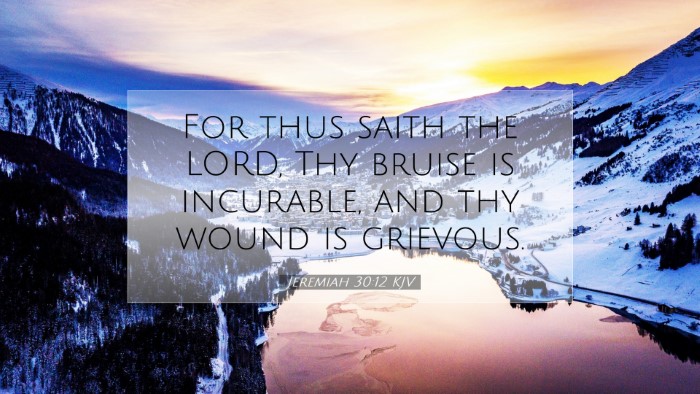Commentary on Jeremiah 30:12
Jeremiah 30:12 states: "For thus saith the LORD, Thy bruise is incurable, and thy wound is grievous." This passage addresses the deep affliction and suffering of Israel, revealing the serious nature of their predicament.
Contextual Overview
In this section, we will explore the context surrounding Jeremiah's message. The Book of Jeremiah is set during a tumultuous time for Israel and Judah as they faced impending doom due to their disobedience to God. This particular chapter, however, draws attention to both the brokenness of the people and the promise of future restoration.
The Nature of the Bruise
Matthew Henry observes that the "bruise" signifies not just a physical ailment but also the spiritual and emotional devastation that the people have endured. This affliction is described as "incurable" and emphasizes the severity of their sins and the consequences that stem from them.
- Spiritual Implications: The wound reflects a deep-seated separation from God, which is often more grievous than physical ailments.
- Historical Context: This refers to the Babylonian Captivity, illustrating the consequences of national sin.
The Grievous Wound
Albert Barnes highlights that the "grievous wound" indicates a wound that is not only serious but also one that has brought significant pain and suffering. Such a wound can symbolize the collective trauma of Israel due to their rejection of God’s covenant.
- Consequences of Sin: Sin can lead to deep emotional and spiritual wounds, affecting the entire community.
- Hope in Despair: Despite the grievous state, God's love and reassurance that restoration is possible are pivotal themes.
Applying the Verse
Adam Clarke suggests that this verse serves as a timeless reminder of the consequences of turning away from God. The sinful state of the people correlates directly with their suffering, which is a theme that transcends time.
- Lessons for Today: The realities of sin remain; believers are called to examine their lives in light of their relationship with God.
- Pastoral Insights: Pastors can use this passage to encourage congregations to seek healing, acknowledging their wounds while also emphasizing God’s redemptive plan.
The Path to Restoration
While the verse emphasizes the severity of Israel's situation, it also serves as a prelude to the divine assurance of restoration that follows in the subsequent verses. The “incurable” nature of the bruise can ultimately point to the necessity of divine intervention for healing, something that God promises in the broader context of the chapter.
- God's Promises: Later in the chapter, God promises healing and restoration, leading to a renewed covenant.
- Hope in Christ: This theme finds its ultimate realization in Christ, who bears our wounds and provides healing to the brokenhearted.
Theological Reflections
Theologically, Jeremiah 30:12 invites reflection on the nature of suffering and divine justice. It underscores the balance between God's holiness and His mercy. The incapacity of the bruise to be healed by human means points to the necessity of Christ's ultimate sacrifice.
- Justice and Mercy: God's judgment is serious, yet His mercy is more profound, emphasizing the need for repentance and faith.
- Redemptive Suffering: The verse can be seen as a precursor to the understanding that while suffering is real, it is also redemptive when aligned with God's purpose.
Conclusion
In summary, Jeremiah 30:12 highlights the grievous state of Israel, immersing readers in the significance of sin and its repercussions while simultaneously paving the way for hope in God's unwavering promise of restoration. For pastors, theologians, and laypersons alike, this verse serves as a profound reminder of the importance of acknowledging our wounds while holding onto the hope of healing through God’s grace.


